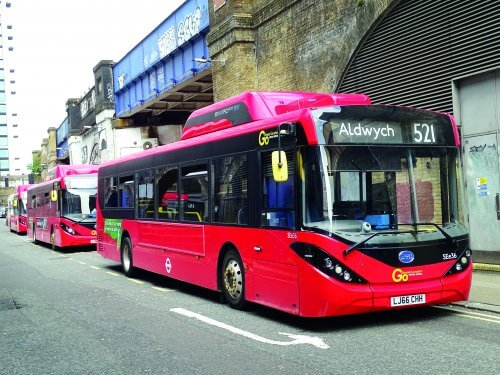Transport for London’s Extraordinary Funding and Financing Agreement is due to come to an end on 11 December. Commenting on the impending date, Mayor of London Sadiq Khan said: “Transport for London is dealing with an unprecedented financial crisis caused by the pandemic. We are now less than a month away from TfL’s emergency funding deal expiring on 11 December. Unless the Government provides the long-term funding needed to maintain our public transport network, there will be no choice but to make significant cuts to services just as demand is growing again. This would mean fewer, less frequent and more run-down bus and tube services for Londoners, making it more difficult to travel around the city. It would also mean more road and tunnel closures due to a lack of funding to maintain key transport infrastructure. The widespread disruption and gridlock all these changes would cause would not only unfairly punish millions of Londoners for the impact of the pandemic on TfL’s finances, but would put the national economic recovery at risk.
“I support greater transport investment in regions across the country, but levelling up Britain must not come at the expense of levelling down London. There can be no London recovery without a properly funded public transport network in the capital, and there can be no national recovery without a London recovery. Our city contributes £36.1bn net to the Treasury each year. TfL contracts contribute around £7bn to the UK economy, and its supply chain supports 43,000 jobs around the country, which could be at risk. If the Government fails to work with us to protect London’s transport network, the capital and the whole country will pay the price for decades to come.”
The agenda for TfL’s Finance Committee meeting on 24 November notes the implications of reduced funding for TfL could mean that: “A reducing bus network would impact our ability to introduce new electric buses, delaying the completion of a zero-emission bus fleet beyond 2034. Reducing the size of the network will lead to surplus vehicles, which would need to be redeployed to achieve the required level of cost reduction, therefore reducing the pace of orders for new zero emissions buses. To make further cost reductions TfL would also have to utilise existing vehicles for longer.
“The combined impact of this would create a pause in ordering any new electric buses whilst we resize the network, which would disrupt the supply chain. This could push the end of diesel operation back to 2037 or later.”
Before the pandemic TfL reduced costs by £1 billion a year compared to 2016, and was on a path to become sustainable in covering the costs of its operations by 2022/3.


